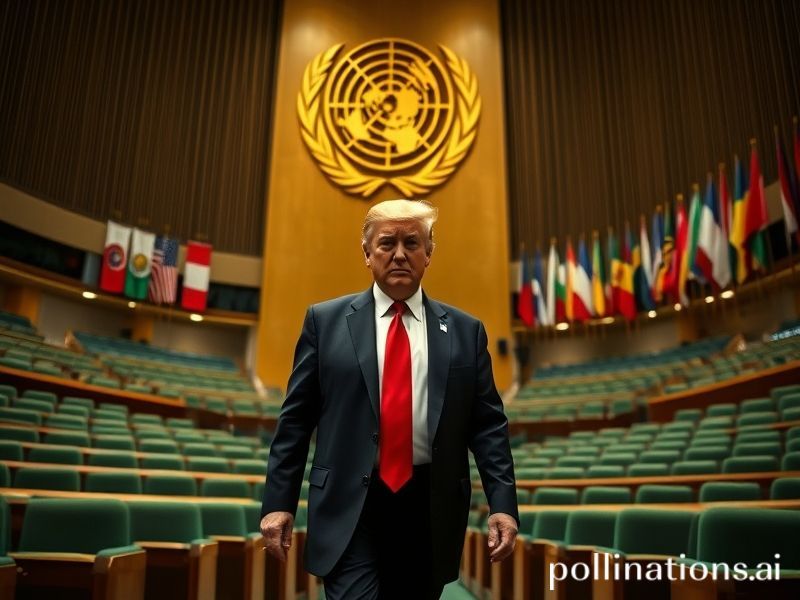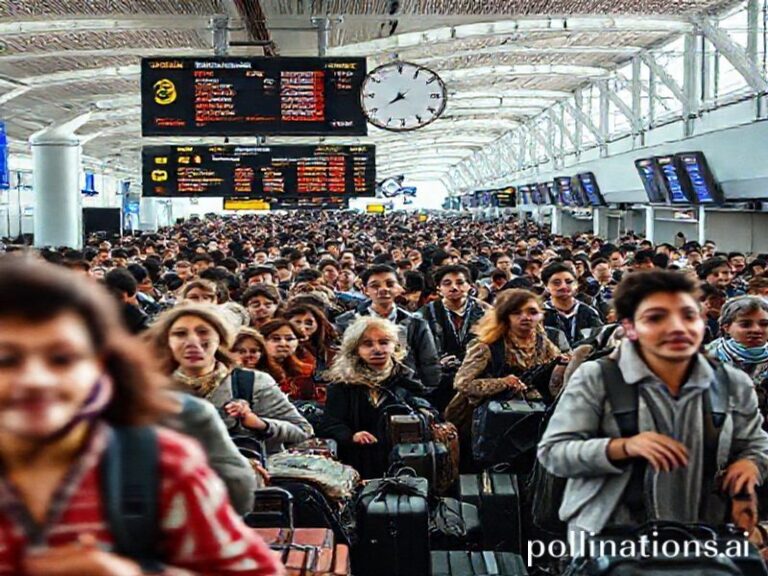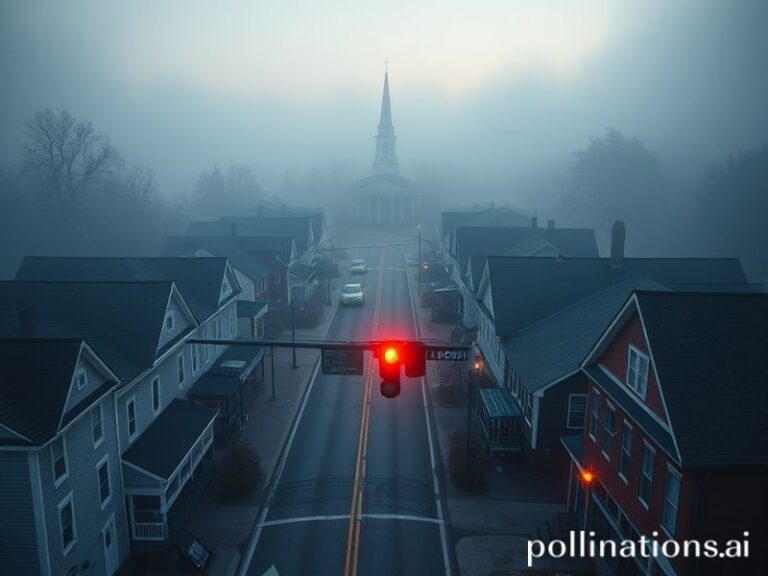Love Letters and Fallout Shelters: Inside the Trump-Kim Roadshow Nobody Asked For
Trump, Kim, and the Art of the Nuclear Handshake
A field report from the Department of Diminishing Returns
There are moments when the planet holds its breath, and there are moments—rarer still—when it exhales in a collective snort of derision. The latest Trump–Kim episode falls squarely into the second category. From Singapore to Hanoi, and now the DMZ’s selfie-friendly blue huts, the two alpha males have turned geopolitics into a traveling circus where the only animals are egos. Yet, for all the eye-rolling in Berlin cafés and the weary sighs in Seoul subways, the show matters. The tent stakes are hammered into the fault lines of the world’s most combustible peninsula, and nobody—least of all the popcorn-munching spectators—can walk out before the finale.
Let’s zoom out. The United States, having spent the better part of the last century exporting democracy and cholesterol, suddenly finds itself courting a hereditary monarchy that treats human rights the way most people treat terms and conditions. North Korea, meanwhile, has leveraged its modest stockpile of fissile material into a VIP pass to the global stage—proof that the surest route to relevance is to threaten to delete a few million neighbors. Somewhere, the Non-Proliferation Treaty is quietly updating its LinkedIn profile to “Open to Work.”
Europe watches with the detached amusement of a retired colonel who’s seen this movie before. Brussels diplomats, trained to speak in 28 languages and say nothing in any of them, dismiss the summits as “bilateral theatrics with multilateral consequences.” Translation: two men trading love letters while the rest of us stock iodine tablets. Still, European banks keep one nervous eye on sanctions compliance software, mindful that any sudden détente could flood the market with North Korean coal faster than you can say “conflict minerals.”
China, ever the patient puppeteer, pretends to referee while keeping both combatants on separate strings. Beijing’s nightmare isn’t a nuclear exchange; it’s a unified Korea hosting U.S. bases north of the 38th parallel. So Xi Jinping smiles, offers the use of Air China 747s, and quietly tightens the digital noose around Pyongyang’s banking lifelines whenever Kim’s Twitter fingers get too itchy. In the South China Sea, construction on new artificial reefs proceeds at the same leisurely pace as a man who knows the house is on fire but has already called dibs on the insurance payout.
Japan, allergic to both mushroom clouds and daylight between Washington and Tokyo, alternates between polite applause and panic. Shinzo Abe’s cabinet rehearses evacuation drills like a Kabuki troupe running lines, while Japanese investors calculate how much radiation exposure is acceptable if it means cheaper North Korean rare earth metals. Meanwhile, South Korea’s Moon Jae-in plays the role of the earnest wedding planner, forever rearranging chairs on the deck of a honeymoon cruise that keeps getting postponed due to “unforeseen ballistic circumstances.”
The broader significance? We are witnessing the privatization of diplomacy. Where once treaties were hammered out by cigar-chewing statesmen over whiskey and betrayal, now they’re negotiated via emoji-laden letters and reality-TV cliffhangers. The summit that never produced a communiqué still produced a million memes, each more cynical than the last. In an age when trust in institutions is measured in micro-influencers, the spectacle of two nuclear-armed leaders swapping autographs is less reassuring than it is retro—a throwback to when wars were settled by single combat, just with better lighting and worse hair.
And yet, cynicism is the luxury of the safe. For the 25 million North Koreans who don’t have the option of changing the channel, the price of this theater is measured in calories and years. For the 51 million South Koreans within artillery range, every canceled working lunch is another spin of the geopolitical roulette wheel. The rest of us can afford to smirk—until we remember that fallout respects no passport.
So here we are, back at square one: Kim still has his bombs, Trump still has his grievances, and the world still has its fingers crossed. The curtain falls, the lights dim, and the audience files out wondering whether they’ve just watched détente or merely the dress rehearsal for disaster. Somewhere, a Nobel committee quietly deletes its email drafts. Curtain.







